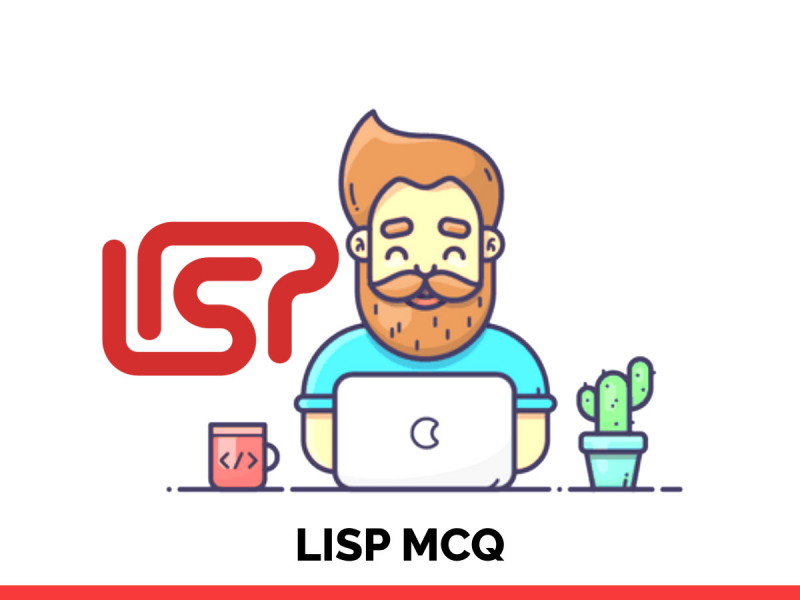Take LISP MCQ Quiz & Online Test to Test your Knowledge
LISP is a programming language designed around the concept of lists and symbols. LISP offers features including recursion, dynamic memory allocation, list comprehensions and pattern matching. It is developed by John McCarthy in the 1958. Finally, Practice here the LISP MCQ Questions that check your basic knowledge of LISP Programming. This LISP MCQ Test contains 25+ Multiple Choice Questions. You have to select the right answer to the every questions. apart from this, you can also download LISP MCQ PDF, completely free.

